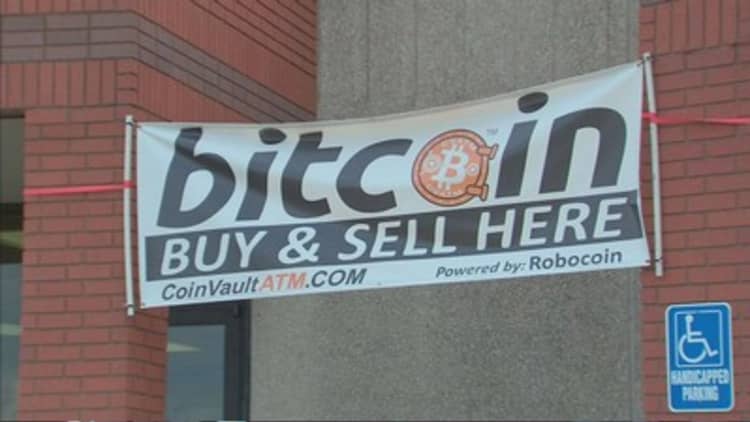
Capital markets could adopt the technology behind bitcoin as early as next year, revolutionizing the industry by enabling more secure transactions and creating new streams of revenue, according to a report by TABB Research.
The report's writers claim that the adoption of the so-called "blockchain" adoption is now a matter of when, not if.
The blockchain was developed to be used with the cryptocurrency bitcoin. It works like a huge, decentralized ledger that records every transaction and stores this information on a global network so it cannot be tampered with.
Currently, a consortium of more than 20 banks led by fintech company R3 is developing a framework for applying blockchain technology to markets.
The report's authors predict blockchain solutions will be applied to track syndicated loans by the second quarter of 2016, but added that other market sectors may take longer. For example, applying blockchain to derivatives will take up to five years to develop, while using blockchain to settle share trading is a decade away.
Utilizing blockchain technology would lead to more efficient and transparent systems to track and record financial transactions, or could improve upon existing systems used by banks, according to the report.
"Within capital markets, a number of top use cases are coming to the fore, opening new opportunities for efficiency and generating revenue from greenfield projects, including private equity, interbank payments and corporate debt, among others," said Shagun Bali, a TABB research analyst and one of the report's writers, in a press release.
Read MoreBank of England: Bitcoin could transform stock markets
The report from TABB reinforces findings made by the Bank of England. Last year, the U.K.'s central bank released a report on bitcoin and described the blockchain as a "genuine technological innovation", because it could allow transaction systems to work without a third party intermediary and showed that digital records can be held securely.
However, Bali outlined a number of challenges that will oppose blockchain technology adoption, such as the expense of integrating it into pre-existing systems.
"Further due diligence for defining industry standards with regards to settlement, counterparty and other transactional risks involved are critical," explained Bali. "As blockchain gains greater mainstream adoption, a strong regulatory framework will be necessary to maintain a balance between security and future mass-market blockchain scalability, a critical industry challenge that lies ahead."
Follow Luke on Twitter: @LukeWGraham

